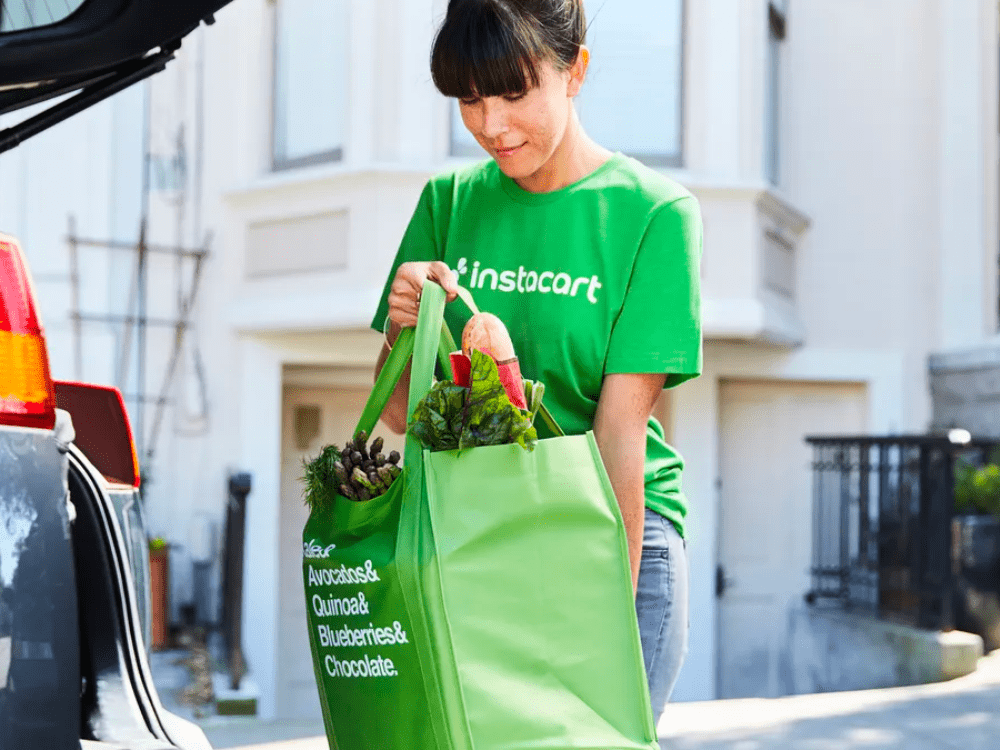- Grocery delivery heavyweight Instacart has filed for its initial public offering (IPO).
- The San Francisco-based company expects to list shares on the Nasdaq under the name CART in September.
- Instacart also said PepsiCo will purchase $175 million of convertible shares at the IPO price in a separate private placement.

Why it matters:
General consensus is that a successful Instacart IPO could go far in revitalizing the IPO market. IPOs have been few and far between, especially for agrifoodtech companies, over the last couple of years due to factors like high interest rates and geopolitical conflict.
Instacart’s filing comes just after Softbank-backed chip designer ARM and marketing automation firm Klaviyo made filings. Mediterranean restaurant chain Cava also made its public debut recently.
According to Instacart’s S-1 filing, the company is profitable. It reported revenues $1.48 billion for the six-month period ending June 30, up 31% from the same period last year.
Advertising and other revenue rose 24% to $406 million. Instacart also noted a net income of $242 million during the six-month period, compared to a $74 million loss a year earlier.
PitchBook lead VC analyst Kyle Stanford noted that while Instacart’s revenues “aren’t enormous,” the company is “growing fast” in addition to generating profit.
“This is in contrast to many unicorns that have filed in recent years, and is in line with what is expected from public investors in the current market,” said Stanford.
He added that Instacart has “set itself up as an intriguing IPO, and will be more comparable for other VC-backed companies than other listings in 2023.”
Alex Frederick, a senior emerging technology analyst at PitchBook, added that Instacart’s success thus far has been “driven by diversification efforts such as the expansion into grocerytech hardware, advertising and partnerships with more stores.”
“Despite facing challenges in sustaining order volume after the pandemic peak, Instacart’s strategic moves, including the introduction of food-stamp payments and the Instacart+ membership program, have propelled its success,” he noted.
In its S-1 filing, Instacart says, as of June 2023, it partners with more than 1,400 retail brands representing 85% of the total US grocery market.
It also noted that grocery retail is “difficult to digitize” because of diverse consumer preferences, complex inventory systems, supply chain silos and a general lag in tech adoption across the industry.
“We have demonstrated our ability to help our retail partners drive strong growth and stay competitive in a complex and increasingly digital industry,” the company said.




